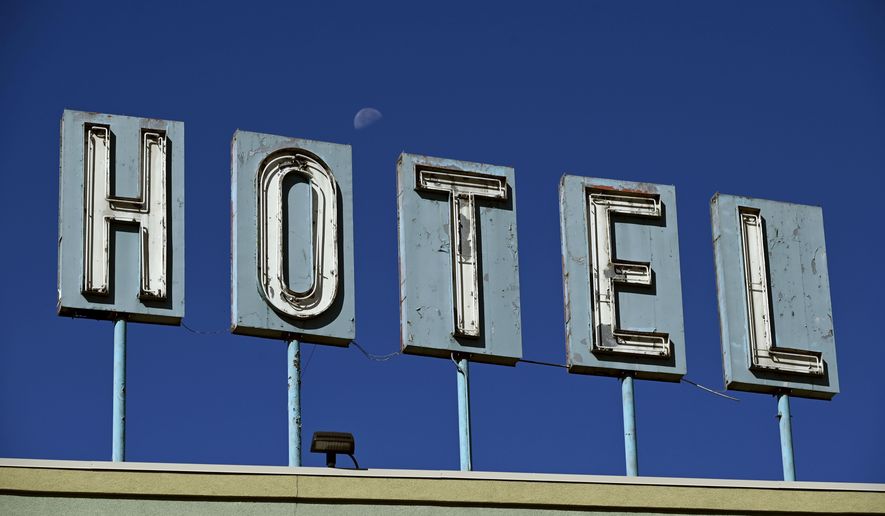Hotels are reporting ongoing labor shortages, and industry experts say high inflation and the availability of remote work have made frontline service jobs less attractive to hourly workers.
The American Hotel and Lodging Association (AHLA) says 87% of 200 hoteliers responding to a member survey reported staffing shortages and 36% said the problem was severe. The trade group estimates that hotels have more than 115,000 unfilled jobs, primarily in housekeeping.
That’s a slight improvement from the 130,000 unfilled job openings the lodging association reported in July, but nowhere near where the industry needs to be. The group says hotels are trying to fill an average of 10.3 positions per property, down from 12 vacancies in May.
“COVID infection is not an issue now. Inflation and wage stagnation are the main worries,” said Larry Yu, a professor of hospitality management at George Washington University.
“People don’t want to work in hotels because they’re back-breaking jobs, graveyard shifts or possibly both,” said Yannis Moati, CEO of New York-based Hotels by Day, an online provider of hotel rooms. “And the pay isn’t that competitive, even if it is indeed improving this year.”
The hotel industry suffered historic revenue losses after shuttering properties and furloughing workers at the height of the pandemic. Many workers did not return after hotels reopened and demand rebounded.
According to the Bureau of Labor Statistics, hotel employment remained down by nearly 400,000 jobs in August from February 2020, before the first pandemic lockdowns.
Hotels have raised wages to address the issue. BLS data show that average hotel wages increased by 16.5% from February 2020 to June 2022, faster than the 12.4% average increase for all occupations over the same period. According to the BLS, the average wage for hotel workers reached $20.30 an hour and $519.68 a week in August.
That’s a record high for hotel wages, according to the industry’s trade group.
“With hotel wages, benefits, flexibility and upward mobility at historic levels, there has never been a better time to work at a hotel than the present,” AHLA President & CEO Chip Rogers said in a statement.
Despite the growth, 91% of hoteliers responding to the AHLA’s Sept. 12-19 survey said they could not fill open positions.
And STR, the hotel industry’s leading market researcher, said absolute wages in leisure and hospitality remain low compared with those in other industries.
“As prices increase for items across the board such as gas, food and shelter, workers have to find higher-paying jobs, and if the wages for hourly hotel jobs do not keep pace with the cost of living increases, these jobs are then much less attractive,” said Jan Freitag, national director of hospitality analytics at CoStar Group, STR’s parent company.
Meanwhile, Travelers Haven, a Denver-based workforce housing agency, reports that remote customer service and sales jobs have grown attractive to wage earners seeking work-life balance.
“A current challenge for hotels in today’s job market is being able to support work-from-home roles. Most positions require 100% in-person attendance,” said Ryn Jarrett, a vice president at Travelers Haven.
Sean Higgins, a research fellow at the libertarian Competitive Enterprise Institute, said it’s impossible to know when the problem will end.
“It is a labor-intense job that historically hasn’t paid well,” Mr. Higgins said. “Even offering higher pay isn’t going to solve the labor shortage in the short term.”
• Sean Salai can be reached at ssalai@washingtontimes.com.




Please read our comment policy before commenting.